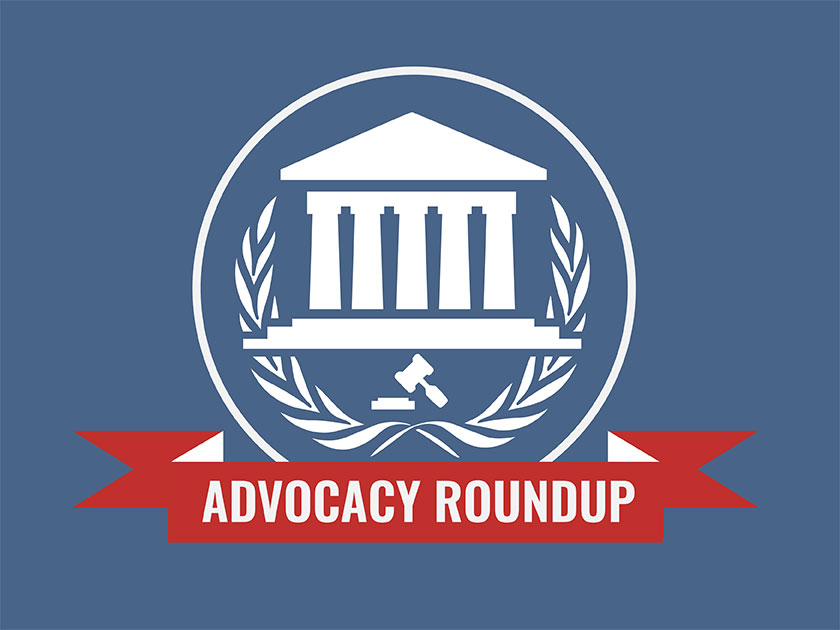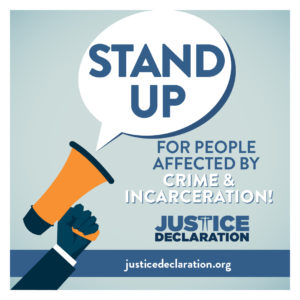
This fall, Prison Fellowship® will focus on three issues impacting the America's incarcerated population.
ALTERNATIVES TO INCARCERATION
Prison Fellowship® founder Chuck Colson once said, "It's not a matter of whether we punish crime, but how and for what purpose." Prison Fellowship's work on sentencing reform aims to ensure that sentences for crime are just and not unduly punitive. Those who commit crimes should be held accountable in ways that also bring restoration to their communities.
Alternatives to incarceration should be prioritized where they are appropriate. Research and experience tell us that when diversion and alternatives to incarceration are used effectively, communities are safer, and families have a better chance of succeeding.
COLLATERAL CONSEQUENCES
In addition to social stigma, more than 48,000 documented legal restrictions weigh down those with a criminal record. These collateral consequences often result in unnecessary challenges in obtaining meaningful employment. Prison Fellowship works to limit government overreach into the decision-making of employers where these restrictions don't benefit public safety.
We believe that all people are created in God's image. No life is beyond God's reach. That's why Prison Fellowship declares April as Second Chance Month, a nationwide, month-long celebration of second chances.
YOUTH JUSTICE
Young people in the juvenile justice system have incredible potential for transformation. Best practices show that youth incarceration should be a last resort for those who truly pose a threat to public safety. That's why Prison Fellowship is actively promoting appropriate alternatives to incarceration for America's youth.
Most young people should be held accountable in their homes and communities through appropriate supervision, mentorship, and life-skills programs. In cases where a correctional facility is the more appropriate option, those facilities ought to have a constructive and therapeutic culture, limited bed space, and close proximity to home for easy visitation.
RAISE THE AGE
In addition, only seven states still automatically try youth under 18 years of age as adults, regardless of their charges. When young people are convicted of crimes as adults, they are vulnerable to physical and sexual assault while confined. They are also more likely to recidivate, and they are restricted by collateral consequences. They will likely carry these consequences for the rest of their lives.
The goal of Raise the Age is to see young people under 18 years old tried in the youth justice system, that these youths will have more opportunities to be transformed and become positively engaged in their communities.
GET INVOLVED
Do you want to help advocate incarceration alternatives, putting an end to collateral consequences, and creating a youth justice system that restores? Here's how you can get involved.

DECLARE JUSTICE
To date, over 2,400 people have signed The Justice Declaration. Grounded in biblical values, the Justice Declaration is a call to the Church to deploy its unique and unparalleled capacity to respond to crime and over-incarceration.
Moving forward, Prison Fellowship will focus on collecting more signatures from individuals and Christian leaders. The Justice Declaration is a foundational opportunity to engage the Church in advocacy efforts, and we will continue to follow up with signatories with additional action opportunities.
LEARN ABOUT JUSTICE THAT RESTORES
Later this month, Prison Fellowship will host the Justice that Restores Conference in Colorado. This one-day event will inspire and equip Colorado churches to advocate for justice and care for those affected by crime and incarceration. The conference will provide attendees with a combination of motivation and practical tools that can be put to use right away, including a copy of the Outrageous Justice small group curriculum.
The keynote speaker is Pastor Dimas Salaberrios, author of "Street God" and a Justice Declaration signatory.
SUPPORT THE REAL ACT OF 2017
The Restoring Education and Learning (REAL) Act of 2017 will be discussed at a briefing on Capitol Hill on Sept. 17. The REAL Act would reinstitute Pell grant eligibility for prisoners, an opportunity withheld from prisoners in the 1990s.
Pell grants are not loans and do not have to be repaid. With Pell grants, education is easier to attain for those most in need. And since there is evidence that higher education dramatically decreases recidivism (see this RAND study for more information), investing in the REAL Act will actually yield savings by avoiding future crime and reincarceration costs.
The REAL Act briefing on Capitol Hill is sponsored by Senator Brian Schatz, D-Hawaii, and the Justice Roundtable's Reentry Working Group and will be held at 12 p.m. on Sept. 17. If you would like to attend, please register online.
ARTICLES YOU MIGHT LIKE
HEALING THE RACIAL DIVIDE (The Stream)
LET'S FUND THE FIGHT TO END SEXUAL ASSAULT IN PRISON
(Houston Chronicle)